Not long after taking office as party leader, Xi Jinping declared war on corruption. His current plan is to purge the financial and pharmaceutical sectors. He is already doing so in the military: Over the past few months, more than a dozen high-ranking military officers have been sacked, including Defense Minister Li Shangfu, whom Xi handpicked. Now, there is a probable explanation for these initially surprising events. And it comes from the US intelligence services, of all places.
The US agents have uncovered the dire state of the Chinese army; they have reported missile tanks filled with water and sealed missile silos, making launches impossible. Michael Radunski analyzes the consequences for the Chinese military and Xi himself. He concludes that this debacle will not harm Xi. On the contrary, his crackdown will strengthen Xi once again.
Meanwhile, Belgium’s Prime Minister Alexander De Croo will be traveling to Beijing this week, marking the start of this year’s regular visits from Europe to China. Belgium took over the EU Council Presidency at the beginning of the year. De Croo’s visit will set the tone for the coming months, writes Amelie Richter – and explains why the Belgian Prime Minister personifies the EU’s dilemma with China.

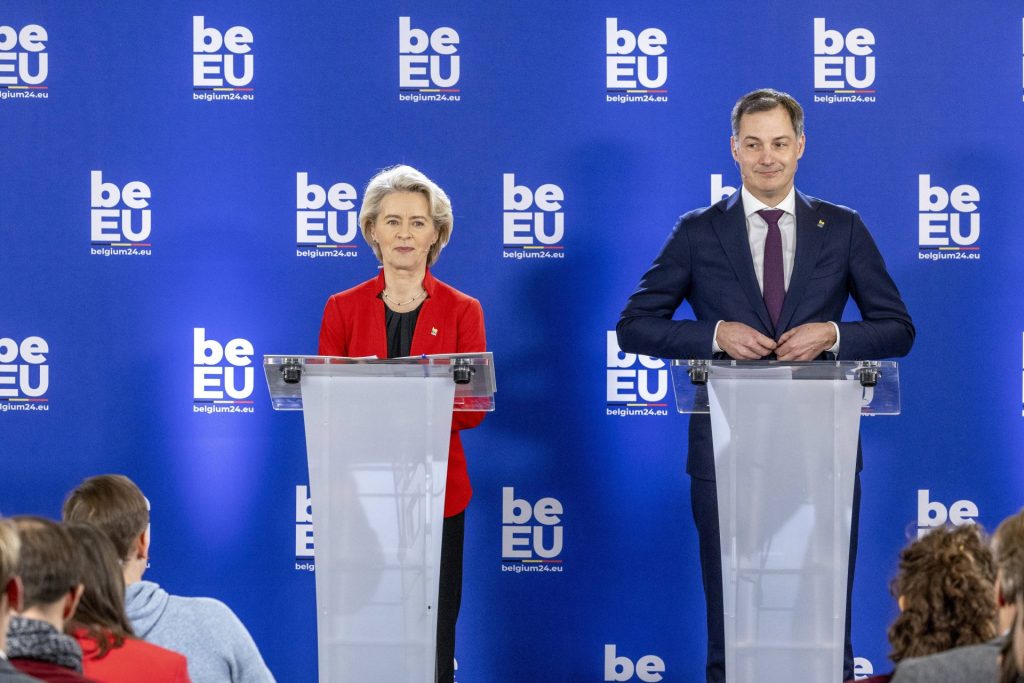
Belgium’s Prime Minister Alexander De Croo and Foreign Minister Hadja Lahbib visit Beijing this week – the first representatives of an EU member state this year. Lahbib has been in Shanghai since Tuesday and will join the rest of the delegation in Beijing on Thursday. It is the first visit by a Belgian head of government since 2016. Belgium has held the EU Council Presidency since January 1.
The new year will also see old points of conflict: During the Belgian Prime Minister’s visit, the trade deficit with China will be a key topic. A large business delegation will be traveling with De Croo, as the Belgian newspaper Le Soir reports. The most important CEOs from Belgium will accompany him. Foreign Minister Lahbib will also be meeting business contacts in Shanghai.
De Croo and Lahbib will meet with Belgian and EU business representatives in the Chinese capital before meeting with the Chairman of China’s National People’s Congress, Zhao Leji, and Prime Minister Li Qiang for political talks. According to the agenda, about 45 minutes of talks are planned with Premier Qiang. According to the agenda, President Xi Jinping will also meet with De Croo on Friday and spend an hour with him.
The plan also includes signing a Memorandum of Understanding (MoU), the content of which Belgium did not initially disclose. De Croo and the delegation will also visit the Forbidden City and inaugurate the new Belgian embassy building in Beijing.
The last visit to China by a Belgian Prime Minister, Charles Michel, the current President of the EU Council, was long ago. It took place in 2016, just one year after the state visit by Belgium’s King Philippe. He traveled with the then Foreign Minister Didier Reynders and business leaders. In 2019, Princess Astrid visited the country with a large business delegation. According to reports in the Chinese state media, the mood during her trip was excellent; there was talk of “co-construction of the Belt and Road, and expand cooperation in trade, investment, and agriculture for high-level win-win results.” Then, the Covid pandemic hit.
Relations with China have cooled noticeably since. “The European concept of de-risking is a major concern for the Chinese,” Bernard Dewit, lawyer and President of the Belgian-Chinese Chamber of Commerce, told Le Soir. Although there is less new foreign investment in China, many large companies have remained there, he says.
He cites the pharmaceutical and biotechnology company UCB, multinational group Solvay, recycling group Umicore, steel processor Bekaert and display manufacturer Barco as examples. “The ports of Antwerp and Zeebrugge are also represented there or maintain ties with their Chinese counterparts.” China’s state-owned shipping company Cosco holds 90 percent of the only container terminal in Zeebrugge, as well as Chinese minority stakes in Antwerp terminals.
As a relatively small country with a population of just over 11.5 million, Belgium ranks seventh on the list of EU exporters to China in 2022, behind Spain and ahead of Sweden. Belgium also ranks seventh among EU countries in terms of imports. Outside of ports, Chinese companies also play an essential role in the Belgian economy: Volvo Car in Ghent is owned by the Geely Group. The online giant Alibaba operates a huge logistics center in Liège.
Yet according to Le Soir, Belgium’s trade deficit with China is currently estimated at 27 billion. Reducing the deficit with the People’s Republic was also the top concern of the EU representatives at the EU-China summit last December. The deficit for the EU is around 400 billion euros. EU Commission President Ursula von der Leyen and Michel, who accompanied her, clearly stated in Beijing that this must change – and that the European Union has the means to do so.
According to Chamber of Commerce boss Dewit, Beijing perceived the EU’s idea of restricting foreign investment in strategic economic sectors as protectionism. He concludes that the honeymoon phase is over. “Now we are more in the age of reason, with a more mature couple where everyone has to learn to live with each other’s peculiarities.”
The honeymoon has not only ended in trade policy – there is also disgruntlement at a diplomatic level. In December, the Financial Times, Le Monde and Spiegel newspapers uncovered a Belgian-Chinese espionage scandal, a veritable Chinagate. “Belgian democracy is being sold. The Chinese are trying to buy influence in order to destabilize our democracy,” De Croo commented on the reports.
The reports revealed that Frank Creyelman, a politician from the far-right Vlaams Belang party, had collaborated with Chinese spies for several years. According to the investigations, Chinese intelligence services had paid Creyelman to spread Chinese positions in Europe. One victim of the projects aimed at damaging the reputation of individuals was critical researcher Adrian Zenz, who uncovered the extent of the repression in Xinjiang.
The affair caused a huge stir and highlighted China’s interference attempts in Europe. De Croo called the practice “unacceptable.” At a hearing in the Belgian Parliament, he assured that he would raise the issue with the Chinese leadership. The Belgian Prime Minister described China’s behavior as “sometimes very hostile.”
However, the espionage scandal is not the only reason for diplomatic discord: In 2021, Foreign Minister Sophie Wilmès summoned the Chinese ambassador after China sanctioned Belgian MP Samuel Cogolati. In 2022, Belgium contacted the Chinese authorities following a cyberattack against the Ministry of Defense by “Chinese groups.” And in October 2023, Belgium’s intelligence service announced an investigation into suspected espionage from the Alibaba logistics center in Liège.
The Belgian Parliament is also one of the few European parliaments that has spoken out against the “danger of genocide” against the Uyghur minority in Xinjiang. The Belgian government may not use the term yet. But diplomatic relations still show cracks.
De Croo will now also be received in Beijing as a representative of the EU Council Presidency. The Belgian program for the EU Council Presidency focuses primarily on trade with China and continues its 2023 approach of restoring the “level playing field,” i.e., uniform competitive conditions, and reducing dependencies on China. According to the program, the Belgian EU Council Presidency will strive to “develop a coherent and consensual EU policy.”
Beijing’s first guest De Croo thus personifies Europe’s China dilemma in some ways. The visit will also set the tone for the coming months, at least until the end of June when Hungary will take over the EU Council Presidency.
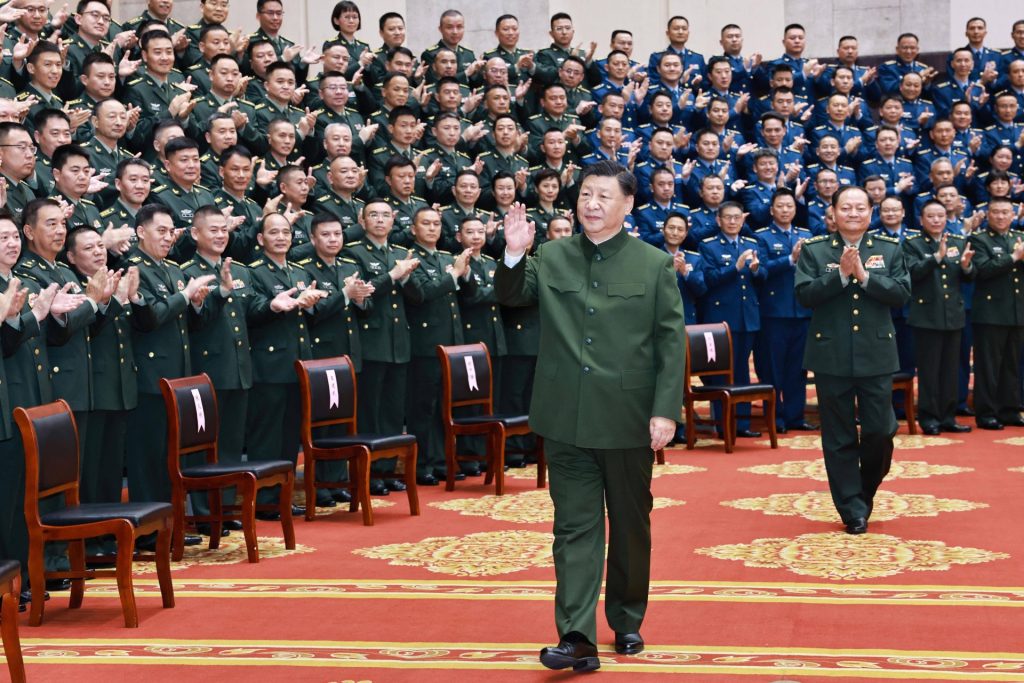
China’s military appears to be in a desolate state – at least some important units of the People’s Liberation Army such as the important Rocket Forces. This is revealed by new findings from the US intelligence services, quoted by Bloomberg. According to the report, US intelligence has discovered, among other things, that the tanks of Chinese missiles are filled with water instead of fuel.
The implications would be far-reaching: On the one hand, it would be a severe setback for the modernization of the Chinese military. On the other hand, possible attack plans – for example, on Taiwan – would also have to be reassessed. However, it was said that Xi’s position at the top as supreme commander would not be damaged. On the contrary.
Naturally, intelligence reports can hardly be independently verified, as in this case. But in light of the recent purges in the Chinese military, the US intelligence reports seem at least plausible.
The reports provide an explanation as to why more than a dozen high-ranking military officers have been sacked in recent months. Several simply disappeared from public view. They were officially removed from their posts a short time later, usually without justification. If there was a justification, it was often only a vague reference to corruption.
Most recently, the Central Committee of the Communist Party expelled nine high-ranking military representatives from the National People’s Congress, including four from the People’s Armed Rocket Force (PLARF). In early August, Xi even replaced the entire leadership of the Rocket Forces. Even former Defense Minister Li Shangfu (李尚福) was ousted in the same way. As a result, the minister’s post remained vacant for months. It was not until the end of December that a successor, Admiral Dong Jun, was appointed.
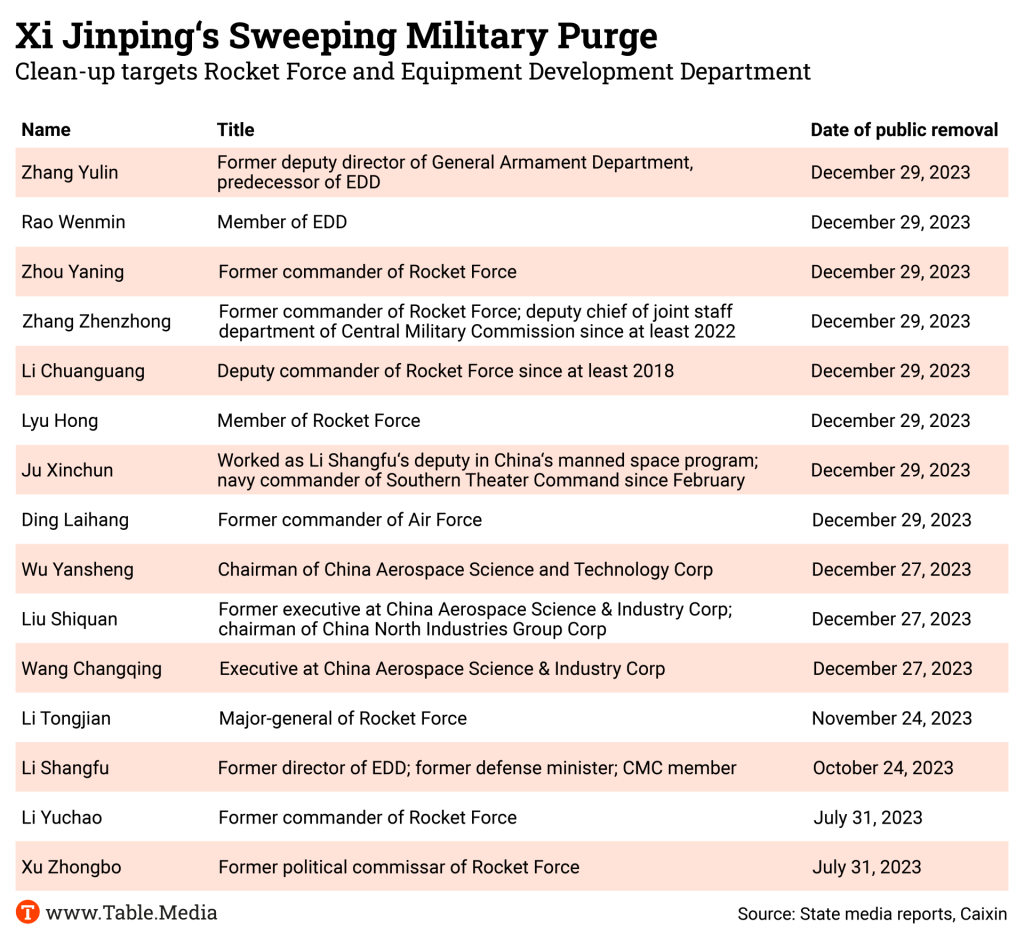
Many of these moves came as a complete surprise to both the public and experts. But noticeably often, it involved the People’s Liberation Army Rocket Force (PLARF/中国人民解放军火箭军). And this is where things get critical.
“Xi has personally put his focus on the PLARF,” Brendan Mulvaney told Table.Media. Since taking office, Xi has invested a lot of time, resources and political support in this force. “Xi talks about the PLARF being important for future conflicts,” says the Director of the China Aerospace Studies Institute, a renowned US Air Force think tank.
The PLARF command controls China’s nuclear arsenal and strategic conventional missiles. This means they would also be vital in any attack scenario on Taiwan. And Xi never tires of emphasizing that “reunification” with Taiwan is a goal he aims to achieve by force, if necessary.
This is another reason why Xi, as Chairman of the Central Military Commission, intends to transform the outdated People’s Liberation Army into a modern, powerful force. Billions have already been invested to turn China’s military into a modern force by 2027. Satellite images from 2021 show hundreds of nuclear-capable missile silos being built in the Xinjiang desert. At the time, there was great international concern that China’s nuclear arsenal could rival that of Russia or the United States soon.
However, current intelligence reports show that Xi’s modernization efforts have been dramatically slowed down in precisely these important areas: Entire silo fields in western China are reportedly covered with covers that prevent the effective firing of missiles. In addition, some rare rockets apparently have tanks filled with water instead of fuel.
The reports seem like a self-fulfilling prophecy. As early as 2014, Chinese military experts warned that the main reason that negatively impacted the Chinese military’s operational capability was corruption within the ranks of the People’s Liberation Army. Some US officials now believe that corruption within the Chinese armed forces could be so severe that Xi will be more reluctant to consider large-scale military operations.
That would be good news for Taiwan, which will elect a new president next Saturday. However, the true extent of corruption in the Chinese military can only be speculated on. And US intelligence reports should also be taken with a grain of salt.
However, indirect confirmation has come from official sources: Even the People’s Liberation Army Daily, the newspaper of the Chinese military, announced in an editorial on January 1 that a comprehensive “war against corruption” would be waged this year. The purge of the management will be intensified. The aim is to correct common behavior, tighten discipline and fight corruption. It is a clear indication that further purges are probably imminent.
That leaves Xi Jinping. Some analysts believe that the purges and the slowed-down modernization of the PLA could weaken the position of the state and party leader as commander-in-chief. Especially because many ousted military officers are cadres who were promoted thanks to Xi.
But there are no signs that Xi’s position is weakening. On the contrary, the tough and comprehensive crackdown proves Xi’s control over the military and his ability to bring it into line. Xi shows how serious he is about eliminating corruption, increasing discipline and making China’s military battle-ready.
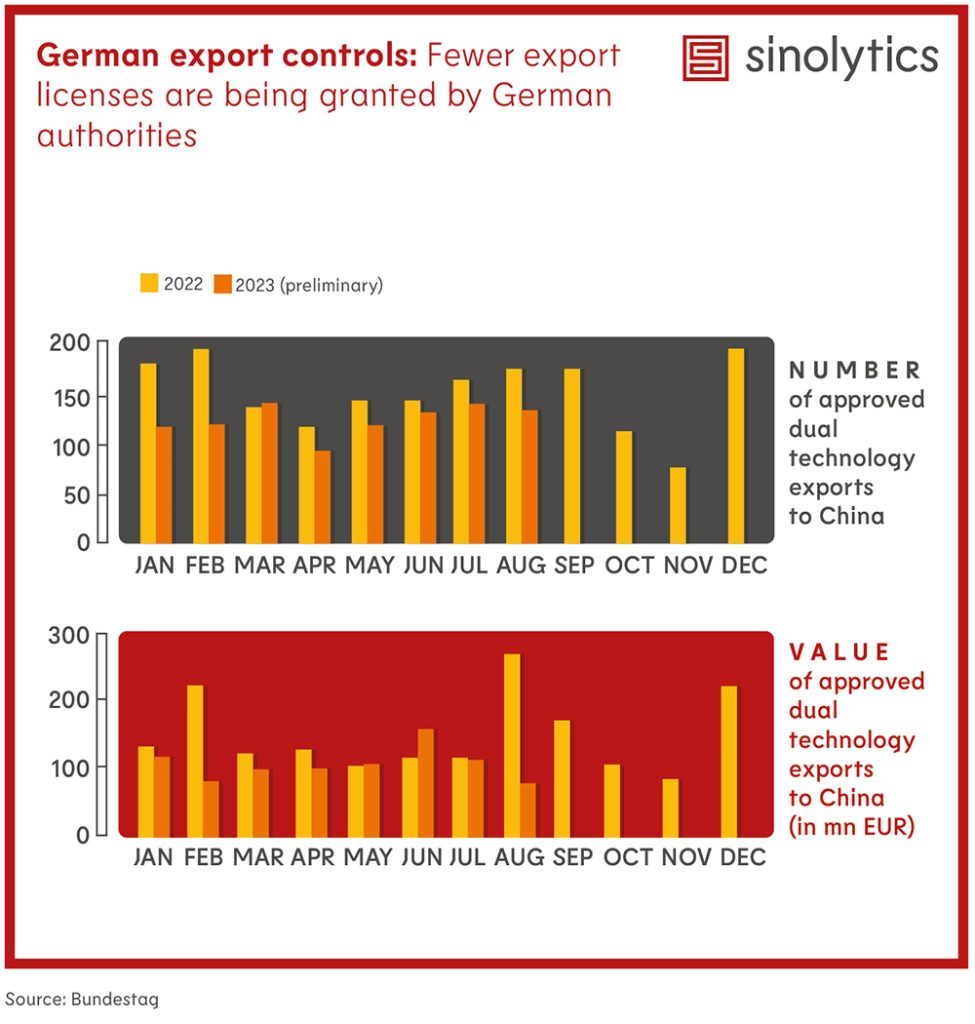
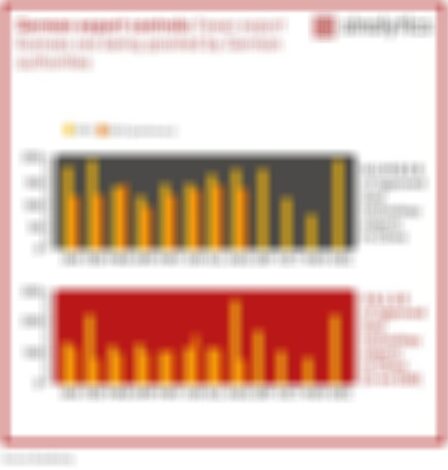
Sinolytics is a European research-based consultancy entirely focused on China. It advises European companies on their strategic orientation and specific business activities in the People’s Republic.
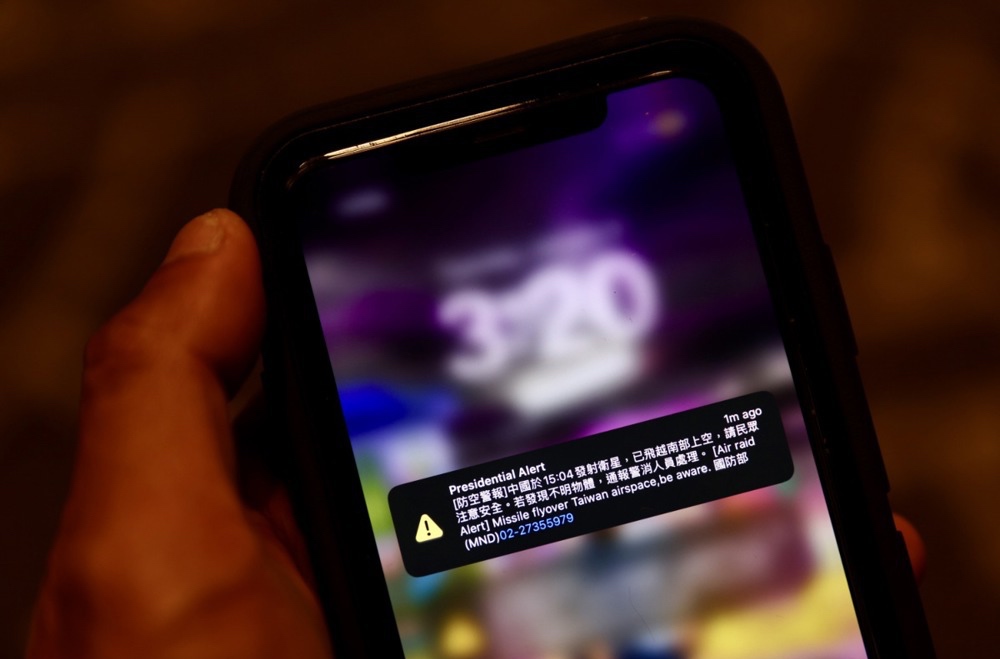
Shortly before the election of a new president and parliament in Taiwan, a wrongly translated warning message about the overflight of a satellite from China caused a stir on Tuesday. The Taiwanese military broadcasted a message with a shrill alarm tone to all smartphones in the afternoon – informing citizens that China’s government had launched a satellite whose flight path would pass through the airspace over southern Taiwan.
The problem: While the Chinese version of the warning sent to all smartphones correctly spoke of a satellite (卫星), the English translation read: “Missile flyover Taiwan airspace, be aware.” The Ministry of Defense admitted the error shortly afterward.

The incident shows the high level of tension just four days before Saturday’s election. China’s state media also reported the launch of a Long March 2C rocket carrying a research satellite from the Xichang Satellite Launch Center in Sichuan. The satellite, which is part of the so-called Einstein Probe project, was reported to have successfully entered its designated orbit.
According to the South China Morning Post, the Einstein Probe program of the Chinese Academy of Sciences (CAS) is also supported by the European Space Agency (ESA) and the Max Planck Institute for Extraterrestrial Physics. The new satellite is a kind of observatory that uses X-rays to monitor flashes in the night sky in order to analyze notable cosmic events.
However, tensions in Taiwan are currently higher than usual. Elections in Taiwan are always accompanied by intimidation campaigns by Beijing, and this year more than ever. Foreign Minister Joseph Wu learned of the alarm during a press conference and immediately described the satellite launch as routine. “When a rocket is openly flying in our sky, some of their tubes or debris will fall in this region. That’s the reason why our national alert center will issue this kind of alert. It has happened before.” Previous launches of this kind have also seen China’s satellites cross Taiwan at high altitudes and never cause any damage, Wu said. This is not expected to happen this time either.
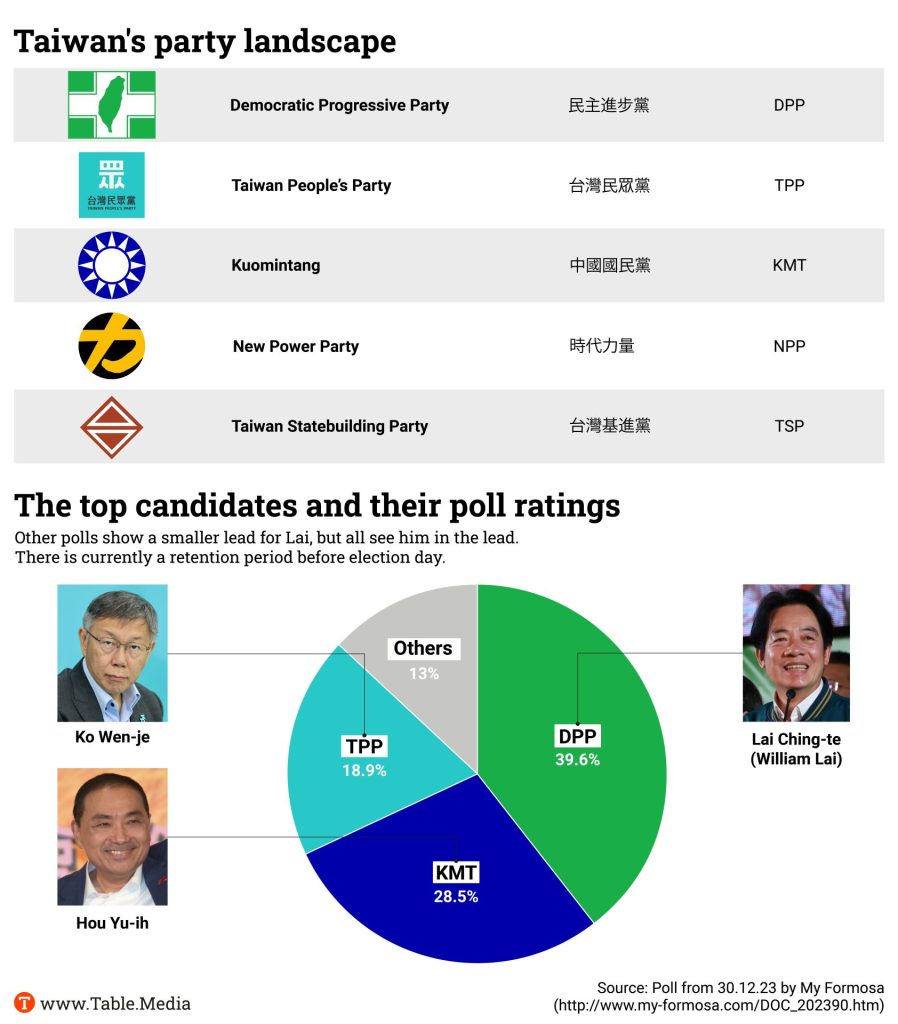
Meanwhile, Eric Chu, leader of the more pro-China opposition party KMT, tried to use the incident politically. He accused the ruling and China-critical DPP of using the alarm to deliberately stir up fear of China. Chu said the idea was to increase the DPP’s chances of success.
It is unclear whether the timing of the satellite launch has anything to do with the upcoming election. In the run-up to the election, China regularly sends aircraft into Taiwan’s Air Defense Identification Zone (ADIZ). Ships from the People’s Republic are crossing the median line, a conspicuous number of alleged weather balloons were spotted last week, and cyberattacks have also increased. The goal: Preventing an election victory for the DPP, which Beijing considers “separatists.” ck
Xi Jinping has called for more efforts in the fight against corruption in sectors such as finance and pharmaceuticals. The state and party leader said at a plenary session of the CCP’s Central Commission for Discipline Inspection that anti-corruption fighters should focus on collusion between government officials and businesspeople. The business magazine Caixin reported this on Tuesday. The speech is a signal that Xi has his sights set on more areas in addition to the ongoing campaign against corruption in the military.
Some of these sectors were already named priority areas in the five-year plan published by the Central Anti-Corruption Coordination Group in September 2023. The aim is to eradicate “industrial, systemic and regional corruption.”
In addition to the People’s Liberation Army, the investigators also targeted the healthcare sector in 2023, according to Caixin. In a large-scale campaign, they investigated more than 150 hospital directors across the country. Several top managers in the financial sector are also already under investigation for bribery. The fight against corruption has been a priority for Xi Jinping since he took office. At present, however, the issue seems to have taken on a new urgency for him. He emphasized that the anti-corruption campaign must not let up and show “absolutely no mercy.” ck
According to the government in Beijing, China has apparently developed a method to identify AirDrop users. This is reported by the South China Morning Post, among others. This feature of Apple’s iPhone only requires a Bluetooth connection to enable the quick exchange of files between Apple devices, such as images, documents, or videos.
As it leaves hardly any digital trace and is almost impossible to monitor, the technology was a thorn in Beijing’s side – precisely because activists often use it, including many protesters who used AirDrop during the protests in Hong Kong in 2019.
State-sponsored forensics firm Beijing Wangshendongjian Technology has now helped police track down people using Apple’s AirDrop feature to send “inappropriate speech,” the Ministry of Justice said on its WeChat channel, according to the report. The technology can reportedly break an iPhone’s encrypted device protocol to identify the numbers and emails of senders sharing AirDrop content. The forensics company had “broken through the technical difficulties of tracing anonymous AirDrops,” it said.
What is particularly important for China’s surveillance authorities is that the company is said to have “prevented the further spread and potential bad influence of inappropriate speech” in the Beijing subway when a passenger received a video via AirDrop. The ministry stated that the police used this method to identify several suspects. It did not say whether anyone had been arrested.
Apple did not initially respond to requests for comment. The company had already restricted the function on Chinese iPhones in 2022. In July 2023, the top internet supervisory authority in China presented a draft regulation aimed at further limiting the use of AirDrop to “protect national security.” cyb
Chinese car manufacturers boosted demand last year with price discounts. According to the China Passenger Car Association, passenger car sales rose by 5.3 percent to 21.93 million vehicles in 2023. This was the third consecutive year of growth for the industry in China.
Exports in particular increased. They soared by 62 percent to a record 3.83 million vehicles, meaning that China is likely to overtake Japan as the world’s largest car exporter – boosted by EV manufacturers, who increasingly pushed into foreign markets.
BYD alone sold a total of around three million vehicles in 2023, almost 62 percent more than in the previous year. Due to the slow demand for new cars, a price war has been raging on the world’s largest car market since the beginning of 2023, triggered by US electric car manufacturer Tesla, which has since spread to more than 40 brands. rtr/cyb
The new and promising Alzheimer’s therapy from Japanese pharmaceutical company Eisai has received approval from the Chinese regulatory authorities. According to Bloomberg, Eisai and its partner Biogen announced on Tuesday that they will start selling the drug in China as early as July.
The approval of the drug Leqembi in China, where around ten million people suffer from Alzheimer’s disease, followed approval for sale in the United States and the Japanese domestic market last year. Eisai is currently seeking approval for other markets, including Europe.
Japan is not always China’s preferred economic partner, but there are still huge opportunities for the country’s pharmaceutical industry. Both East Asian countries have rapidly aging populations, and Japan’s drug manufacturers are working hard to develop treatments for diseases that mainly affect the elderly. cyb
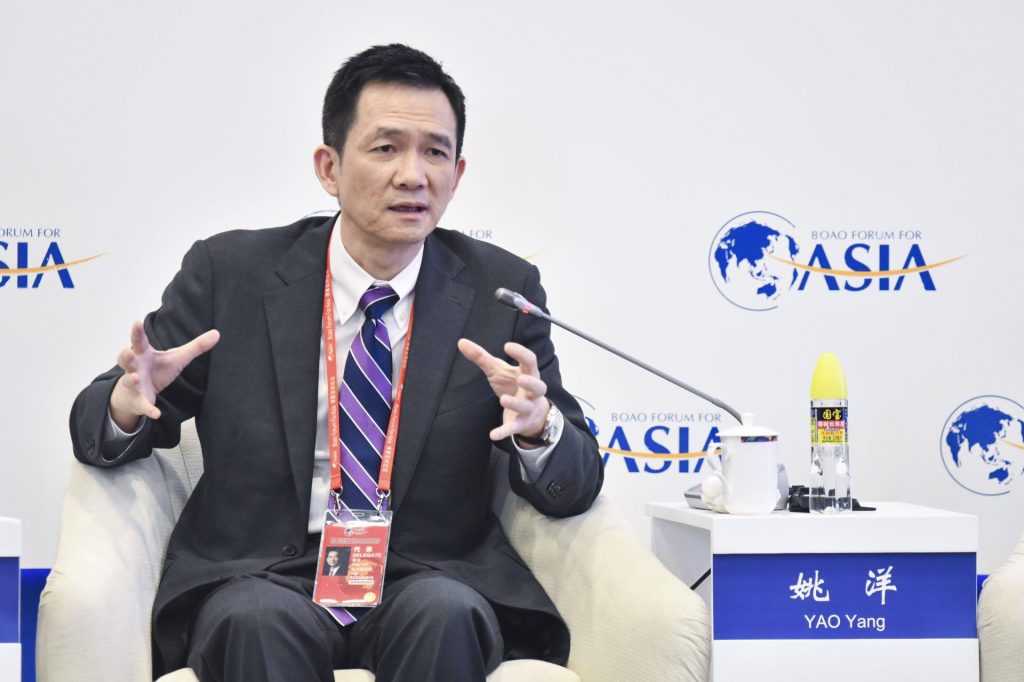
China’s economic performance over the last year has been disappointing – so much so that some observers argue that growth has already peaked, and that it is all downhill from here. But it is far too soon to write off China’s economic resilience.
As 2023 began, the lifting of draconian “zero-COVID” restrictions fueled a kind of domestic euphoria, reflected in soaring consumption. But the picture soon darkened, with the second quarter bringing declining exports, stagnating retail sales, shrinking corporate profits, local-government spending cuts, and a weakening housing sector. Chinese business confidence plummeted, and foreign businesses were spooked. In November, China recorded its first-ever quarterly deficit in foreign direct investment.
Even so, China’s economy will probably grow by at least 5 percent this year – a respectable rate, by international standards. More important, China’s economy still has a lot of fuel in the tank: a record-high savings rate means that it still has plenty of cheap finance for investment and innovation.
Already, China is investing heavily in the technologies – such as renewable energy, electric vehicles, and artificial intelligence – that will shape the global economy in the coming decades. China is also rapidly developing its capacity in emerging technologies like fusion nuclear, quantum computing, quantum communication, and photonic semiconductors. We know that this strategy works: other successful economies, such as Japan in the 1970s and 1980s, have proved as much.
But China does face growth headwinds. Geopolitical tensions – in particular, the United States-led effort to “de-couple” from China economically – are discouraging FDI and spurring companies to diversify their production away from China. But rather than leaving China altogether, many foreign firms are adopting a “China+1” strategy, opening new facilities in a third country, while maintaining their Chinese operations.
The reason is simple: With 30 percent of the world’s total manufacturing value-added – about the share of Germany, Japan, and the US combined – China still offers firms a massive cost advantage. Add to that huge excess capacity, and China’s manufacturing sector will continue to thrive. In fact, the only thing America’s decoupling effort will ultimately achieve is to spur China to accelerate the development of its own overseas manufacturing capabilities, much as Japan has done since the 1980s.
The likely impact of unfavorable demographic trends on long-term growth is similarly overstated. Yes, China’s population is aging and shrinking rapidly. But as AI enables the automation of a growing number of tasks, productivity will increase, and demand for human labor will fall. Together with improved education, this should more than compensate for the contraction of the labor force – possibly even creating the opposite problem: too few jobs.
So, what explains China’s slow recovery from the COVID-19 pandemic? The answer lies in government policy.
Over the last several years, the central government has been working to tackle imbalances that threaten China’s long-run growth prospects – beginning with massive debts held by state-owned enterprises, private companies (such as real-estate developers), and local governments. If China has learned anything from the US, it is that excessive financialization can destroy a country’s manufacturing sector. That is why the Chinese authorities are committed to deleveraging.
Local governments are a top priority on this front. Since 2010, China has pursued two major rounds of fiscal and monetary expansion, each of which led to a surge in the commercial debts of local governments. After the first round, in 2014-18, the central government allowed local governments to issue long-term bonds worth 8 trillion yuan (1.1 trillion US dollars), so that they could repay their commercial debts – a kind of debt-swap program. But local governments were again forced to borrow heavily during the COVID-19 pandemic, accumulating yet more debt that the authorities are still working to address.
Another priority for the central government is unwinding the excessive commercialization of some sectors. Consider the tutoring industry: families pay private education companies for after-school classes, in the hope of giving their children an advantage over their peers. But these companies charge high prices, which parents struggle to pay, and provide little benefit to students, who are already working hard in school. So, in 2021 – with the private tutoring industry having ballooned to 120 billion US dollars – the authorities banned for-profit after-school tutoring in core subjects.
The third key imbalance that China’s government is attempting to reduce lies in the real-estate sector, which is simply too large, accounting for about a quarter of all fixed investment between 2013 and 2021. With some major property developers now struggling to service their debts, stabilizing the sector has become a top priority for policymakers.
None of these imbalances poses an imminent threat to Chinese growth. But reducing them will bolster China’s long-term economic health. That is why China’s government is taking bold action, despite the short-term costs. For example, housing sales have plummeted by about 40 percent since mid-2021, owing largely to government efforts to rein in the sector.
The good news is that the government has set growth as its main goal for this year and has rolled out new expansionary monetary and fiscal policies. Notably, with the monetary authorities encouraging banks to resume lending to real-estate developers, it is hoped that the housing sector will return to normal this year.
Yang Yao is Liberal Arts Chair Professor at the China Center for Economic Research and the National School of Development at Peking University.
Copyright: Project Syndicate, 2024.
www.project-syndicate.org
Philipp Boing will take up the professorship for Empirical Innovation Research with a focus on China at Goethe University Frankfurt in February. A central research focus will be on innovation, productivity and the global competitiveness of companies in China.
Is something changing in your organization? Let us know at heads@table.media!
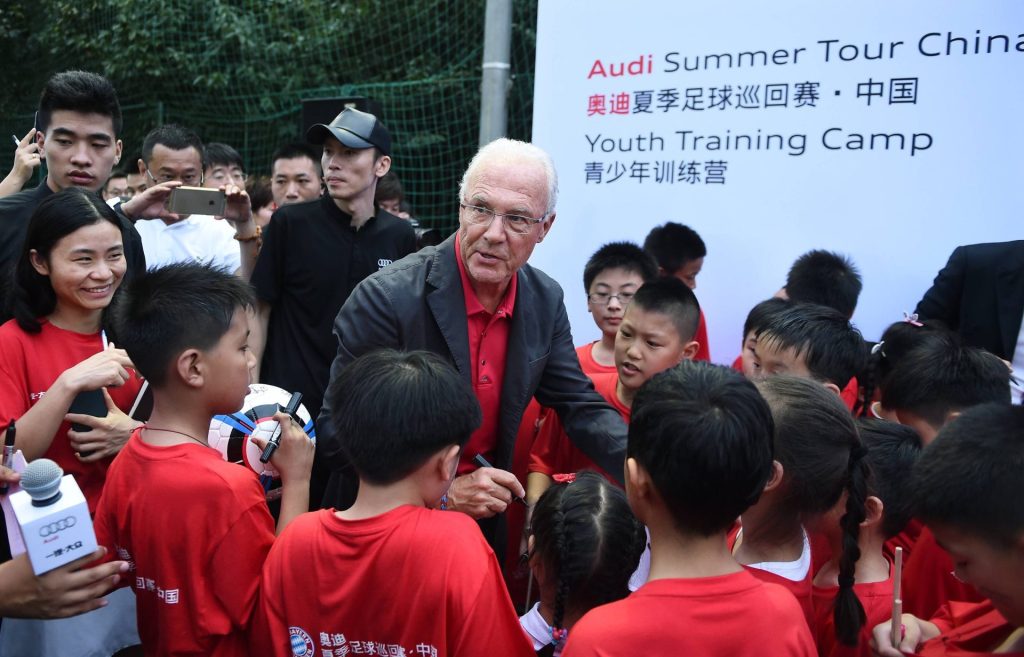
Famous German football personality Franz Beckenbauer passed away on Sunday and was extremely popular in football-crazy China. Even in the 1990s, Chinese people would ask travelers from Germany about “be-ken-bao-er” on the train, for example, usually with a smile and a thumbs-up.
Chinese state television has been broadcasting the German Bundesliga live for many years, despite the time difference. Beckenbauer’s club, Bayern Munich, has many fans in China and has had an office in Shanghai since 2017. In the picture, Beckenbauer, who was also honorary president of FC Bayern, signs autographs for children at a youth training camp during a soccer training session as part of the club’s trip to Asia in 2015.
Not long after taking office as party leader, Xi Jinping declared war on corruption. His current plan is to purge the financial and pharmaceutical sectors. He is already doing so in the military: Over the past few months, more than a dozen high-ranking military officers have been sacked, including Defense Minister Li Shangfu, whom Xi handpicked. Now, there is a probable explanation for these initially surprising events. And it comes from the US intelligence services, of all places.
The US agents have uncovered the dire state of the Chinese army; they have reported missile tanks filled with water and sealed missile silos, making launches impossible. Michael Radunski analyzes the consequences for the Chinese military and Xi himself. He concludes that this debacle will not harm Xi. On the contrary, his crackdown will strengthen Xi once again.
Meanwhile, Belgium’s Prime Minister Alexander De Croo will be traveling to Beijing this week, marking the start of this year’s regular visits from Europe to China. Belgium took over the EU Council Presidency at the beginning of the year. De Croo’s visit will set the tone for the coming months, writes Amelie Richter – and explains why the Belgian Prime Minister personifies the EU’s dilemma with China.


Belgium’s Prime Minister Alexander De Croo and Foreign Minister Hadja Lahbib visit Beijing this week – the first representatives of an EU member state this year. Lahbib has been in Shanghai since Tuesday and will join the rest of the delegation in Beijing on Thursday. It is the first visit by a Belgian head of government since 2016. Belgium has held the EU Council Presidency since January 1.
The new year will also see old points of conflict: During the Belgian Prime Minister’s visit, the trade deficit with China will be a key topic. A large business delegation will be traveling with De Croo, as the Belgian newspaper Le Soir reports. The most important CEOs from Belgium will accompany him. Foreign Minister Lahbib will also be meeting business contacts in Shanghai.
De Croo and Lahbib will meet with Belgian and EU business representatives in the Chinese capital before meeting with the Chairman of China’s National People’s Congress, Zhao Leji, and Prime Minister Li Qiang for political talks. According to the agenda, about 45 minutes of talks are planned with Premier Qiang. According to the agenda, President Xi Jinping will also meet with De Croo on Friday and spend an hour with him.
The plan also includes signing a Memorandum of Understanding (MoU), the content of which Belgium did not initially disclose. De Croo and the delegation will also visit the Forbidden City and inaugurate the new Belgian embassy building in Beijing.
The last visit to China by a Belgian Prime Minister, Charles Michel, the current President of the EU Council, was long ago. It took place in 2016, just one year after the state visit by Belgium’s King Philippe. He traveled with the then Foreign Minister Didier Reynders and business leaders. In 2019, Princess Astrid visited the country with a large business delegation. According to reports in the Chinese state media, the mood during her trip was excellent; there was talk of “co-construction of the Belt and Road, and expand cooperation in trade, investment, and agriculture for high-level win-win results.” Then, the Covid pandemic hit.
Relations with China have cooled noticeably since. “The European concept of de-risking is a major concern for the Chinese,” Bernard Dewit, lawyer and President of the Belgian-Chinese Chamber of Commerce, told Le Soir. Although there is less new foreign investment in China, many large companies have remained there, he says.
He cites the pharmaceutical and biotechnology company UCB, multinational group Solvay, recycling group Umicore, steel processor Bekaert and display manufacturer Barco as examples. “The ports of Antwerp and Zeebrugge are also represented there or maintain ties with their Chinese counterparts.” China’s state-owned shipping company Cosco holds 90 percent of the only container terminal in Zeebrugge, as well as Chinese minority stakes in Antwerp terminals.
As a relatively small country with a population of just over 11.5 million, Belgium ranks seventh on the list of EU exporters to China in 2022, behind Spain and ahead of Sweden. Belgium also ranks seventh among EU countries in terms of imports. Outside of ports, Chinese companies also play an essential role in the Belgian economy: Volvo Car in Ghent is owned by the Geely Group. The online giant Alibaba operates a huge logistics center in Liège.
Yet according to Le Soir, Belgium’s trade deficit with China is currently estimated at 27 billion. Reducing the deficit with the People’s Republic was also the top concern of the EU representatives at the EU-China summit last December. The deficit for the EU is around 400 billion euros. EU Commission President Ursula von der Leyen and Michel, who accompanied her, clearly stated in Beijing that this must change – and that the European Union has the means to do so.
According to Chamber of Commerce boss Dewit, Beijing perceived the EU’s idea of restricting foreign investment in strategic economic sectors as protectionism. He concludes that the honeymoon phase is over. “Now we are more in the age of reason, with a more mature couple where everyone has to learn to live with each other’s peculiarities.”
The honeymoon has not only ended in trade policy – there is also disgruntlement at a diplomatic level. In December, the Financial Times, Le Monde and Spiegel newspapers uncovered a Belgian-Chinese espionage scandal, a veritable Chinagate. “Belgian democracy is being sold. The Chinese are trying to buy influence in order to destabilize our democracy,” De Croo commented on the reports.
The reports revealed that Frank Creyelman, a politician from the far-right Vlaams Belang party, had collaborated with Chinese spies for several years. According to the investigations, Chinese intelligence services had paid Creyelman to spread Chinese positions in Europe. One victim of the projects aimed at damaging the reputation of individuals was critical researcher Adrian Zenz, who uncovered the extent of the repression in Xinjiang.
The affair caused a huge stir and highlighted China’s interference attempts in Europe. De Croo called the practice “unacceptable.” At a hearing in the Belgian Parliament, he assured that he would raise the issue with the Chinese leadership. The Belgian Prime Minister described China’s behavior as “sometimes very hostile.”
However, the espionage scandal is not the only reason for diplomatic discord: In 2021, Foreign Minister Sophie Wilmès summoned the Chinese ambassador after China sanctioned Belgian MP Samuel Cogolati. In 2022, Belgium contacted the Chinese authorities following a cyberattack against the Ministry of Defense by “Chinese groups.” And in October 2023, Belgium’s intelligence service announced an investigation into suspected espionage from the Alibaba logistics center in Liège.
The Belgian Parliament is also one of the few European parliaments that has spoken out against the “danger of genocide” against the Uyghur minority in Xinjiang. The Belgian government may not use the term yet. But diplomatic relations still show cracks.
De Croo will now also be received in Beijing as a representative of the EU Council Presidency. The Belgian program for the EU Council Presidency focuses primarily on trade with China and continues its 2023 approach of restoring the “level playing field,” i.e., uniform competitive conditions, and reducing dependencies on China. According to the program, the Belgian EU Council Presidency will strive to “develop a coherent and consensual EU policy.”
Beijing’s first guest De Croo thus personifies Europe’s China dilemma in some ways. The visit will also set the tone for the coming months, at least until the end of June when Hungary will take over the EU Council Presidency.

China’s military appears to be in a desolate state – at least some important units of the People’s Liberation Army such as the important Rocket Forces. This is revealed by new findings from the US intelligence services, quoted by Bloomberg. According to the report, US intelligence has discovered, among other things, that the tanks of Chinese missiles are filled with water instead of fuel.
The implications would be far-reaching: On the one hand, it would be a severe setback for the modernization of the Chinese military. On the other hand, possible attack plans – for example, on Taiwan – would also have to be reassessed. However, it was said that Xi’s position at the top as supreme commander would not be damaged. On the contrary.
Naturally, intelligence reports can hardly be independently verified, as in this case. But in light of the recent purges in the Chinese military, the US intelligence reports seem at least plausible.
The reports provide an explanation as to why more than a dozen high-ranking military officers have been sacked in recent months. Several simply disappeared from public view. They were officially removed from their posts a short time later, usually without justification. If there was a justification, it was often only a vague reference to corruption.
Most recently, the Central Committee of the Communist Party expelled nine high-ranking military representatives from the National People’s Congress, including four from the People’s Armed Rocket Force (PLARF). In early August, Xi even replaced the entire leadership of the Rocket Forces. Even former Defense Minister Li Shangfu (李尚福) was ousted in the same way. As a result, the minister’s post remained vacant for months. It was not until the end of December that a successor, Admiral Dong Jun, was appointed.

Many of these moves came as a complete surprise to both the public and experts. But noticeably often, it involved the People’s Liberation Army Rocket Force (PLARF/中国人民解放军火箭军). And this is where things get critical.
“Xi has personally put his focus on the PLARF,” Brendan Mulvaney told Table.Media. Since taking office, Xi has invested a lot of time, resources and political support in this force. “Xi talks about the PLARF being important for future conflicts,” says the Director of the China Aerospace Studies Institute, a renowned US Air Force think tank.
The PLARF command controls China’s nuclear arsenal and strategic conventional missiles. This means they would also be vital in any attack scenario on Taiwan. And Xi never tires of emphasizing that “reunification” with Taiwan is a goal he aims to achieve by force, if necessary.
This is another reason why Xi, as Chairman of the Central Military Commission, intends to transform the outdated People’s Liberation Army into a modern, powerful force. Billions have already been invested to turn China’s military into a modern force by 2027. Satellite images from 2021 show hundreds of nuclear-capable missile silos being built in the Xinjiang desert. At the time, there was great international concern that China’s nuclear arsenal could rival that of Russia or the United States soon.
However, current intelligence reports show that Xi’s modernization efforts have been dramatically slowed down in precisely these important areas: Entire silo fields in western China are reportedly covered with covers that prevent the effective firing of missiles. In addition, some rare rockets apparently have tanks filled with water instead of fuel.
The reports seem like a self-fulfilling prophecy. As early as 2014, Chinese military experts warned that the main reason that negatively impacted the Chinese military’s operational capability was corruption within the ranks of the People’s Liberation Army. Some US officials now believe that corruption within the Chinese armed forces could be so severe that Xi will be more reluctant to consider large-scale military operations.
That would be good news for Taiwan, which will elect a new president next Saturday. However, the true extent of corruption in the Chinese military can only be speculated on. And US intelligence reports should also be taken with a grain of salt.
However, indirect confirmation has come from official sources: Even the People’s Liberation Army Daily, the newspaper of the Chinese military, announced in an editorial on January 1 that a comprehensive “war against corruption” would be waged this year. The purge of the management will be intensified. The aim is to correct common behavior, tighten discipline and fight corruption. It is a clear indication that further purges are probably imminent.
That leaves Xi Jinping. Some analysts believe that the purges and the slowed-down modernization of the PLA could weaken the position of the state and party leader as commander-in-chief. Especially because many ousted military officers are cadres who were promoted thanks to Xi.
But there are no signs that Xi’s position is weakening. On the contrary, the tough and comprehensive crackdown proves Xi’s control over the military and his ability to bring it into line. Xi shows how serious he is about eliminating corruption, increasing discipline and making China’s military battle-ready.


Sinolytics is a European research-based consultancy entirely focused on China. It advises European companies on their strategic orientation and specific business activities in the People’s Republic.

Shortly before the election of a new president and parliament in Taiwan, a wrongly translated warning message about the overflight of a satellite from China caused a stir on Tuesday. The Taiwanese military broadcasted a message with a shrill alarm tone to all smartphones in the afternoon – informing citizens that China’s government had launched a satellite whose flight path would pass through the airspace over southern Taiwan.
The problem: While the Chinese version of the warning sent to all smartphones correctly spoke of a satellite (卫星), the English translation read: “Missile flyover Taiwan airspace, be aware.” The Ministry of Defense admitted the error shortly afterward.

The incident shows the high level of tension just four days before Saturday’s election. China’s state media also reported the launch of a Long March 2C rocket carrying a research satellite from the Xichang Satellite Launch Center in Sichuan. The satellite, which is part of the so-called Einstein Probe project, was reported to have successfully entered its designated orbit.
According to the South China Morning Post, the Einstein Probe program of the Chinese Academy of Sciences (CAS) is also supported by the European Space Agency (ESA) and the Max Planck Institute for Extraterrestrial Physics. The new satellite is a kind of observatory that uses X-rays to monitor flashes in the night sky in order to analyze notable cosmic events.
However, tensions in Taiwan are currently higher than usual. Elections in Taiwan are always accompanied by intimidation campaigns by Beijing, and this year more than ever. Foreign Minister Joseph Wu learned of the alarm during a press conference and immediately described the satellite launch as routine. “When a rocket is openly flying in our sky, some of their tubes or debris will fall in this region. That’s the reason why our national alert center will issue this kind of alert. It has happened before.” Previous launches of this kind have also seen China’s satellites cross Taiwan at high altitudes and never cause any damage, Wu said. This is not expected to happen this time either.

Meanwhile, Eric Chu, leader of the more pro-China opposition party KMT, tried to use the incident politically. He accused the ruling and China-critical DPP of using the alarm to deliberately stir up fear of China. Chu said the idea was to increase the DPP’s chances of success.
It is unclear whether the timing of the satellite launch has anything to do with the upcoming election. In the run-up to the election, China regularly sends aircraft into Taiwan’s Air Defense Identification Zone (ADIZ). Ships from the People’s Republic are crossing the median line, a conspicuous number of alleged weather balloons were spotted last week, and cyberattacks have also increased. The goal: Preventing an election victory for the DPP, which Beijing considers “separatists.” ck
Xi Jinping has called for more efforts in the fight against corruption in sectors such as finance and pharmaceuticals. The state and party leader said at a plenary session of the CCP’s Central Commission for Discipline Inspection that anti-corruption fighters should focus on collusion between government officials and businesspeople. The business magazine Caixin reported this on Tuesday. The speech is a signal that Xi has his sights set on more areas in addition to the ongoing campaign against corruption in the military.
Some of these sectors were already named priority areas in the five-year plan published by the Central Anti-Corruption Coordination Group in September 2023. The aim is to eradicate “industrial, systemic and regional corruption.”
In addition to the People’s Liberation Army, the investigators also targeted the healthcare sector in 2023, according to Caixin. In a large-scale campaign, they investigated more than 150 hospital directors across the country. Several top managers in the financial sector are also already under investigation for bribery. The fight against corruption has been a priority for Xi Jinping since he took office. At present, however, the issue seems to have taken on a new urgency for him. He emphasized that the anti-corruption campaign must not let up and show “absolutely no mercy.” ck
According to the government in Beijing, China has apparently developed a method to identify AirDrop users. This is reported by the South China Morning Post, among others. This feature of Apple’s iPhone only requires a Bluetooth connection to enable the quick exchange of files between Apple devices, such as images, documents, or videos.
As it leaves hardly any digital trace and is almost impossible to monitor, the technology was a thorn in Beijing’s side – precisely because activists often use it, including many protesters who used AirDrop during the protests in Hong Kong in 2019.
State-sponsored forensics firm Beijing Wangshendongjian Technology has now helped police track down people using Apple’s AirDrop feature to send “inappropriate speech,” the Ministry of Justice said on its WeChat channel, according to the report. The technology can reportedly break an iPhone’s encrypted device protocol to identify the numbers and emails of senders sharing AirDrop content. The forensics company had “broken through the technical difficulties of tracing anonymous AirDrops,” it said.
What is particularly important for China’s surveillance authorities is that the company is said to have “prevented the further spread and potential bad influence of inappropriate speech” in the Beijing subway when a passenger received a video via AirDrop. The ministry stated that the police used this method to identify several suspects. It did not say whether anyone had been arrested.
Apple did not initially respond to requests for comment. The company had already restricted the function on Chinese iPhones in 2022. In July 2023, the top internet supervisory authority in China presented a draft regulation aimed at further limiting the use of AirDrop to “protect national security.” cyb
Chinese car manufacturers boosted demand last year with price discounts. According to the China Passenger Car Association, passenger car sales rose by 5.3 percent to 21.93 million vehicles in 2023. This was the third consecutive year of growth for the industry in China.
Exports in particular increased. They soared by 62 percent to a record 3.83 million vehicles, meaning that China is likely to overtake Japan as the world’s largest car exporter – boosted by EV manufacturers, who increasingly pushed into foreign markets.
BYD alone sold a total of around three million vehicles in 2023, almost 62 percent more than in the previous year. Due to the slow demand for new cars, a price war has been raging on the world’s largest car market since the beginning of 2023, triggered by US electric car manufacturer Tesla, which has since spread to more than 40 brands. rtr/cyb
The new and promising Alzheimer’s therapy from Japanese pharmaceutical company Eisai has received approval from the Chinese regulatory authorities. According to Bloomberg, Eisai and its partner Biogen announced on Tuesday that they will start selling the drug in China as early as July.
The approval of the drug Leqembi in China, where around ten million people suffer from Alzheimer’s disease, followed approval for sale in the United States and the Japanese domestic market last year. Eisai is currently seeking approval for other markets, including Europe.
Japan is not always China’s preferred economic partner, but there are still huge opportunities for the country’s pharmaceutical industry. Both East Asian countries have rapidly aging populations, and Japan’s drug manufacturers are working hard to develop treatments for diseases that mainly affect the elderly. cyb

China’s economic performance over the last year has been disappointing – so much so that some observers argue that growth has already peaked, and that it is all downhill from here. But it is far too soon to write off China’s economic resilience.
As 2023 began, the lifting of draconian “zero-COVID” restrictions fueled a kind of domestic euphoria, reflected in soaring consumption. But the picture soon darkened, with the second quarter bringing declining exports, stagnating retail sales, shrinking corporate profits, local-government spending cuts, and a weakening housing sector. Chinese business confidence plummeted, and foreign businesses were spooked. In November, China recorded its first-ever quarterly deficit in foreign direct investment.
Even so, China’s economy will probably grow by at least 5 percent this year – a respectable rate, by international standards. More important, China’s economy still has a lot of fuel in the tank: a record-high savings rate means that it still has plenty of cheap finance for investment and innovation.
Already, China is investing heavily in the technologies – such as renewable energy, electric vehicles, and artificial intelligence – that will shape the global economy in the coming decades. China is also rapidly developing its capacity in emerging technologies like fusion nuclear, quantum computing, quantum communication, and photonic semiconductors. We know that this strategy works: other successful economies, such as Japan in the 1970s and 1980s, have proved as much.
But China does face growth headwinds. Geopolitical tensions – in particular, the United States-led effort to “de-couple” from China economically – are discouraging FDI and spurring companies to diversify their production away from China. But rather than leaving China altogether, many foreign firms are adopting a “China+1” strategy, opening new facilities in a third country, while maintaining their Chinese operations.
The reason is simple: With 30 percent of the world’s total manufacturing value-added – about the share of Germany, Japan, and the US combined – China still offers firms a massive cost advantage. Add to that huge excess capacity, and China’s manufacturing sector will continue to thrive. In fact, the only thing America’s decoupling effort will ultimately achieve is to spur China to accelerate the development of its own overseas manufacturing capabilities, much as Japan has done since the 1980s.
The likely impact of unfavorable demographic trends on long-term growth is similarly overstated. Yes, China’s population is aging and shrinking rapidly. But as AI enables the automation of a growing number of tasks, productivity will increase, and demand for human labor will fall. Together with improved education, this should more than compensate for the contraction of the labor force – possibly even creating the opposite problem: too few jobs.
So, what explains China’s slow recovery from the COVID-19 pandemic? The answer lies in government policy.
Over the last several years, the central government has been working to tackle imbalances that threaten China’s long-run growth prospects – beginning with massive debts held by state-owned enterprises, private companies (such as real-estate developers), and local governments. If China has learned anything from the US, it is that excessive financialization can destroy a country’s manufacturing sector. That is why the Chinese authorities are committed to deleveraging.
Local governments are a top priority on this front. Since 2010, China has pursued two major rounds of fiscal and monetary expansion, each of which led to a surge in the commercial debts of local governments. After the first round, in 2014-18, the central government allowed local governments to issue long-term bonds worth 8 trillion yuan (1.1 trillion US dollars), so that they could repay their commercial debts – a kind of debt-swap program. But local governments were again forced to borrow heavily during the COVID-19 pandemic, accumulating yet more debt that the authorities are still working to address.
Another priority for the central government is unwinding the excessive commercialization of some sectors. Consider the tutoring industry: families pay private education companies for after-school classes, in the hope of giving their children an advantage over their peers. But these companies charge high prices, which parents struggle to pay, and provide little benefit to students, who are already working hard in school. So, in 2021 – with the private tutoring industry having ballooned to 120 billion US dollars – the authorities banned for-profit after-school tutoring in core subjects.
The third key imbalance that China’s government is attempting to reduce lies in the real-estate sector, which is simply too large, accounting for about a quarter of all fixed investment between 2013 and 2021. With some major property developers now struggling to service their debts, stabilizing the sector has become a top priority for policymakers.
None of these imbalances poses an imminent threat to Chinese growth. But reducing them will bolster China’s long-term economic health. That is why China’s government is taking bold action, despite the short-term costs. For example, housing sales have plummeted by about 40 percent since mid-2021, owing largely to government efforts to rein in the sector.
The good news is that the government has set growth as its main goal for this year and has rolled out new expansionary monetary and fiscal policies. Notably, with the monetary authorities encouraging banks to resume lending to real-estate developers, it is hoped that the housing sector will return to normal this year.
Yang Yao is Liberal Arts Chair Professor at the China Center for Economic Research and the National School of Development at Peking University.
Copyright: Project Syndicate, 2024.
www.project-syndicate.org
Philipp Boing will take up the professorship for Empirical Innovation Research with a focus on China at Goethe University Frankfurt in February. A central research focus will be on innovation, productivity and the global competitiveness of companies in China.
Is something changing in your organization? Let us know at heads@table.media!

Famous German football personality Franz Beckenbauer passed away on Sunday and was extremely popular in football-crazy China. Even in the 1990s, Chinese people would ask travelers from Germany about “be-ken-bao-er” on the train, for example, usually with a smile and a thumbs-up.
Chinese state television has been broadcasting the German Bundesliga live for many years, despite the time difference. Beckenbauer’s club, Bayern Munich, has many fans in China and has had an office in Shanghai since 2017. In the picture, Beckenbauer, who was also honorary president of FC Bayern, signs autographs for children at a youth training camp during a soccer training session as part of the club’s trip to Asia in 2015.
